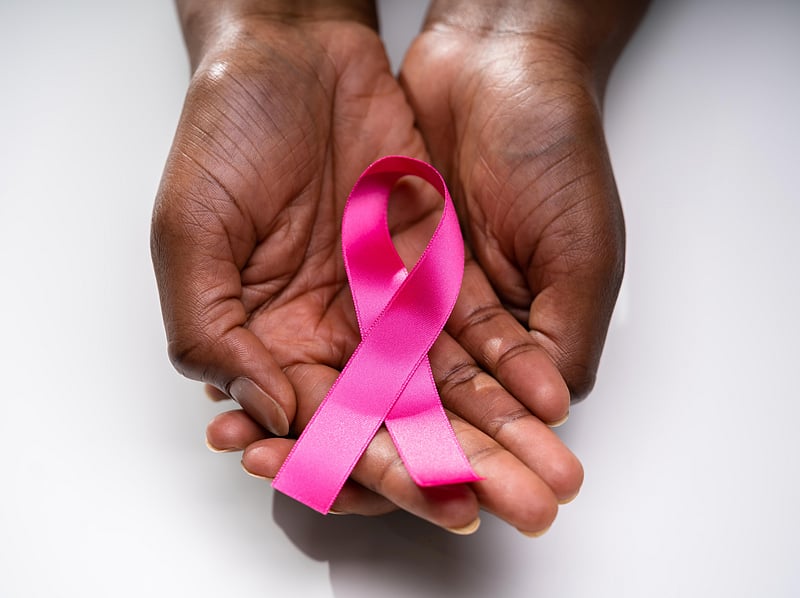Manténgase sano!

- Amy Norton
- Posted February 16, 2023
Do Older Patients Need Radiation Rx After Breast Cancer Surgery?
Many older women with early-stage breast cancer can skip radiation without harming their survival odds, a new clinical trial finds.
The study involved women age 65 and older who had surgery for small breast tumors deemed to be low risk of coming back. Typically, those women undergo radiation after surgery, and then start on hormonal therapy to further drive down the chances of a recurrence.
For a long time, the question has been whether those patients can safely skip the round of radiation.
Based on the new findings, published Feb. 16 in the New England Journal of Medicine, the answer is yes.
Researchers found that post-surgery radiation made no difference in how long those patients ultimately survived: After 10 years, about 81% of trial participants were still alive, regardless of whether they received radiation. And of women who died during the study period, few -- 13% -- died of breast cancer.
Experts said the findings should lay to rest any worries about skipping radiation for the appropriate patients.
"This is great news," said Dr. Alice Ho, co-director of the Breast Cancer Clinical Research Unit at Duke University in Durham, N.C.
Radiation to the breast can cause side effects, like pain and skin inflammation, and there is a small chance of long-term damage to the heart or lungs. Plus, Ho said, some women would prefer to skip any treatment that is not "absolutely necessary."
"This study gives doctors reassurance that they are not harming patients by offering omission of radiation as an option," said Ho, who co-wrote an editorial published with the study.
There are, though, some important caveats, she and other experts said.
For one, the findings do not apply to women younger than 65, said lead researcher Dr. Ian Kunkler.
"For younger women, postoperative radiotherapy remains standard," said Kunkler, an oncologist and professor at the University of Edinburgh in Scotland.
He also stressed that the trial included a particular set of breast cancer patients: All had tumors no larger than 3 centimeters and no signs the cancer had spread to lymph nodes in the armpit. They also had hormone-receptor-positive cancer, which means estrogen and progesterone were helping to fuel its growth. Hormonal therapy is recommended for those cancers to help prevent a recurrence, and all of the trial patients started a five-year course of hormonal therapy.
So, the results are relevant only to women like those in the trial, Kunkler said.
On top of that, even those women may still opt for radiation, both Kunkler and Ho said.
That's because the trial found that radiation did lower the chances of a "local" recurrence -- cancer that comes back within the breast. Over 10 years, just under 1% of patients who received radiation had a local recurrence, versus nearly 10% of those who skipped radiation.
Plus, Ho said, technology advances in recent years have made radiation both safer and easier. A course of radiation can now take as little as one week.
That point was echoed by Dr. Naamit Gerber, a radiation oncologist at NYU Langone Perlmutter Cancer Center in New York City.
She said that "many women" may still opt for radiation to minimize the odds of a local recurrence, especially if there's any uncertainty they can stick with five years of hormonal therapy.
The trial included 1,326 patients with an average age of 71, all of whom had surgery to remove small breast tumors. Half were randomly assigned to undergo radiation for three to five weeks; the other half skipped it.
After 10 years, survival rates in both groups were nearly identical, at just shy of 81%. Few women in either group suffered a "distant" recurrence (breast cancer that had spread to other areas of the body): 1.6% in the no-radiation group, and 3% in the radiation group.
When it came to local recurrence risk, skipping radiation did raise the odds. But sticking with hormonal therapy mattered, too: Among women who did not receive radiation, the risk of a local recurrence was four times higher for those who stopped hormonal therapy at some point, versus those who continued.
It all means that treatment decisions need to be individualized, all three doctors said.
And, Ho noted, decisions around treating early, low-risk breast cancer are actually more complicated, versus more advanced cancer -- because there are more options.
"We have to let patients know what the data show, and go from there," Ho said. "It's really a collaborative decision."
As for younger women with early-stage breast cancer, trials are underway to identify those who could safely skip radiation.
More information
The American Cancer Society has more on treatment options for breast cancer.
SOURCES: Ian Kunkler, MA, MB, MChir, professor, clinical oncology, University of Edinburgh, Edinburgh, U.K.; Alice Ho, MD, MBA, co-director, Breast Cancer Clinical Research Unit, Duke University Medical Center, Durham, N.C.; Naamit Gerber, MD, associate professor, radiation oncology, NYU Grossman School of Medicine, New York City; New England Journal of Medicine, Feb. 16, 2023






